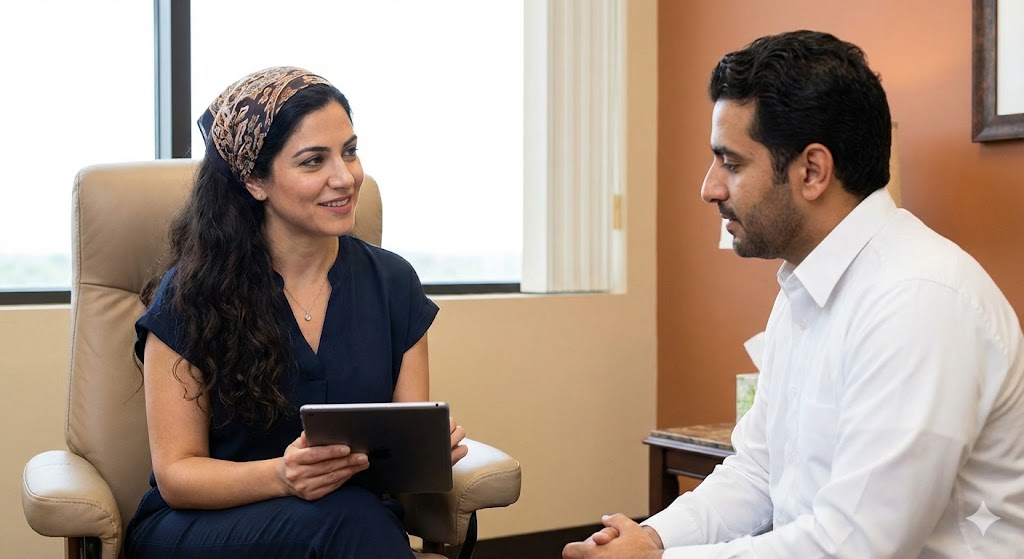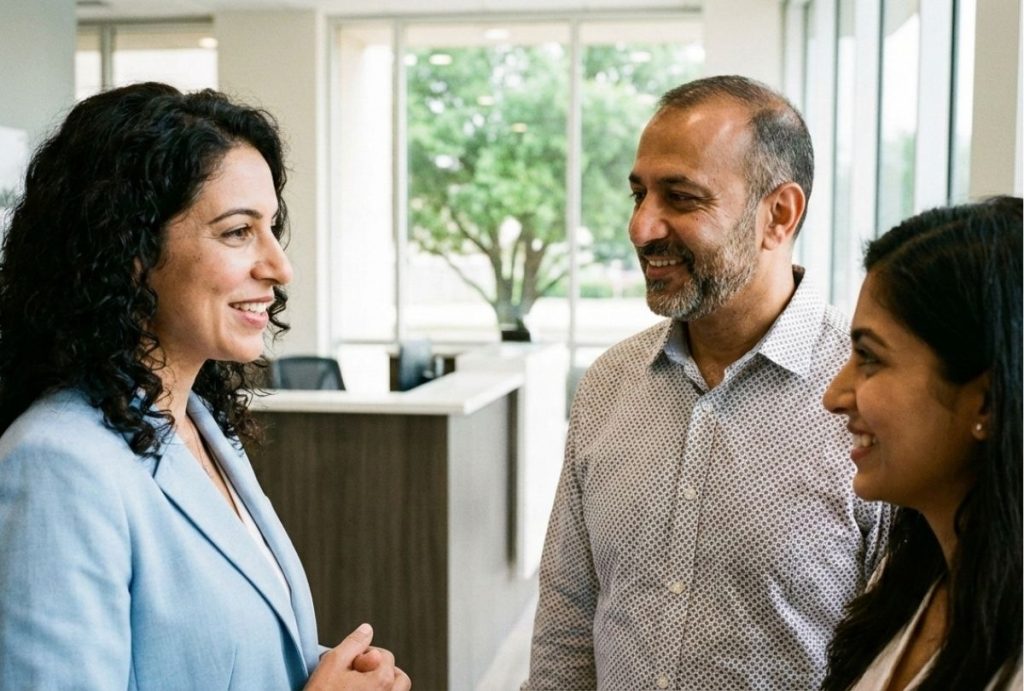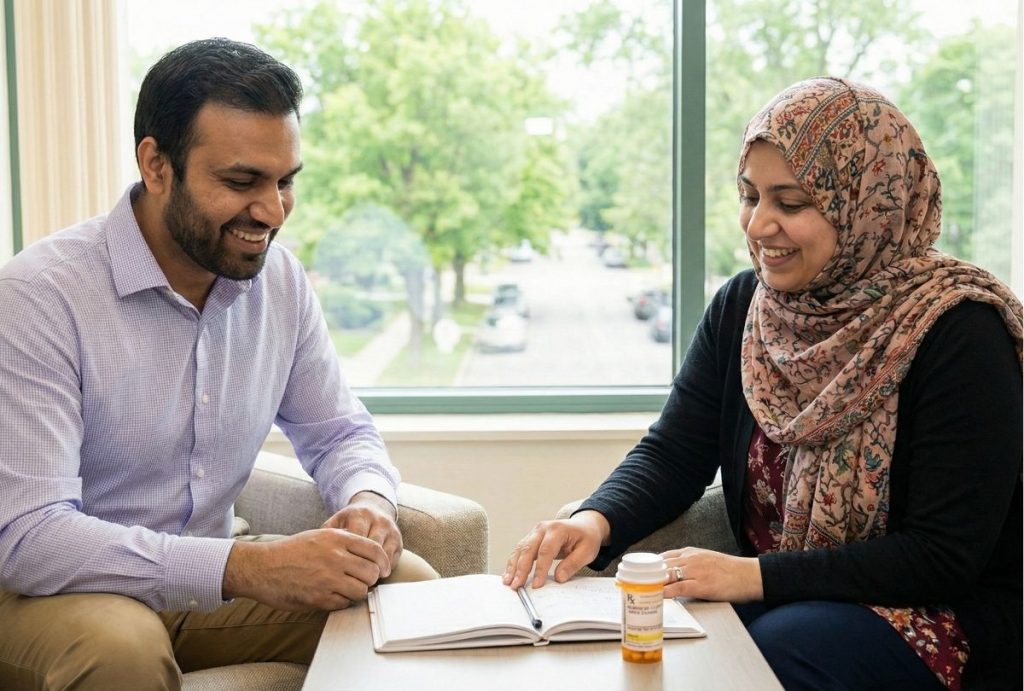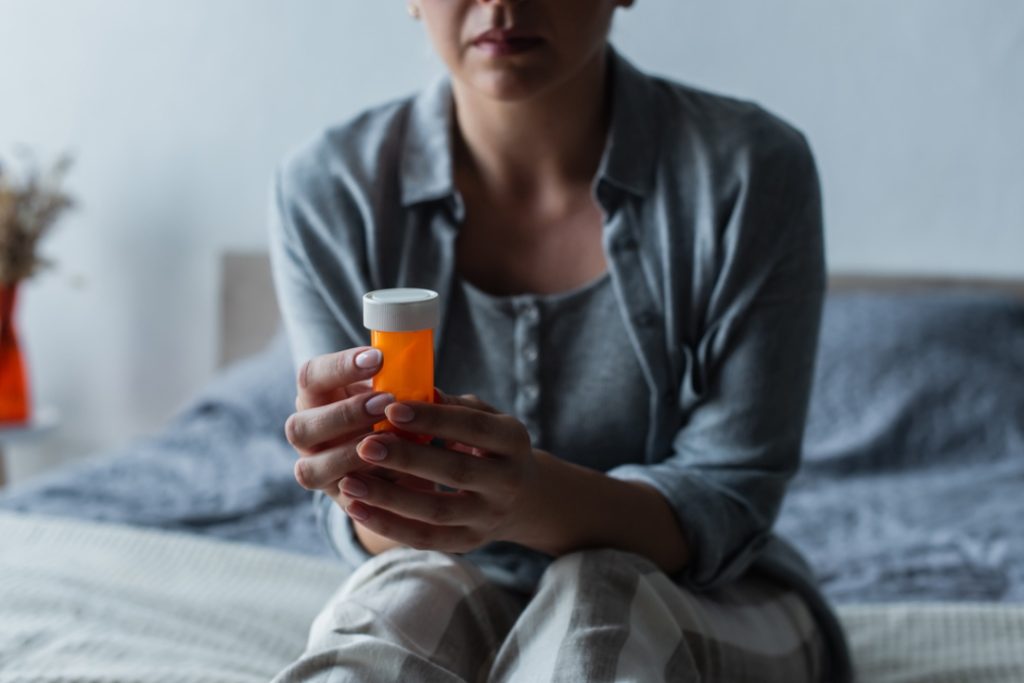What Types of Depression Treatment Are Available in Sugar Land?
By Elite Psychiatry | December 25, 2024
If you’re struggling with depression, it’s important to know that there are a variety of treatment options available in Sugar Land to help you feel better. No single treatment works for everyone, so finding the right combination that works for your specific needs is key to recovery. Whether you’re dealing with mild symptoms or more severe depression, understanding the different treatment options can help you take the first step toward healing. In this blog, we’ll explore the most common types of depression treatments in Sugar Land and how they can work together to improve your mental health.
1. Medication for Depression
One of the most widely used and effective treatments for depression is medication. Antidepressants help regulate the chemicals in your brain that influence mood and emotions. In Sugar Land, psychiatrists typically recommend the following types of antidepressants:
Selective Serotonin Reuptake Inhibitors (SSRIs)
SSRIs are the most commonly prescribed antidepressants. They work by increasing the amount of serotonin, a neurotransmitter that affects mood, in the brain. Some well-known SSRIs include:
SSRIs are often favored because they have fewer side effects compared to older medications and are effective for treating mild to moderate depression.
Serotonin-Norepinephrine Reuptake Inhibitors (SNRIs)
SNRIs are similar to SSRIs but also target norepinephrine, another neurotransmitter that helps regulate mood. They can be particularly helpful for people who experience both depression and anxiety. Examples include:
SNRIs are often prescribed when SSRIs aren’t effective, or if you also have chronic pain or anxiety.
Tricyclic Antidepressants (TCAs)
TCAs are an older class of antidepressants but are still used to treat severe depression. They work by increasing the levels of serotonin and norepinephrine in the brain. While effective, TCAs tend to have more side effects compared to SSRIs and SNRIs.
Atypical Antidepressants
Atypical antidepressants, such as Bupropion (Wellbutrin) and Mirtazapine (Remeron), don’t fit into the categories above. They work by targeting different brain chemicals and may be prescribed for people who don’t respond well to other medications.
2. Psychotherapy (Talk Therapy)
In addition to medication, psychotherapy (often called talk therapy) is a critical component of depression treatment. Therapy provides a safe space to explore your feelings, thoughts, and behaviors and can help you develop coping mechanisms. Several types of therapy are available in Sugar Land, including:
Cognitive-Behavioral Therapy (CBT)
CBT is one of the most common forms of therapy for depression. It focuses on identifying and changing negative thought patterns that contribute to depression. CBT helps individuals recognize unhealthy thinking and replace it with more realistic and positive thoughts. It’s often used for people with moderate to severe depression and can provide lasting results.
Interpersonal Therapy (IPT)
IPT focuses on improving relationships and communication skills. This therapy is particularly helpful if depression is linked to social difficulties, grief, or major life changes. IPT helps individuals understand how their relationships affect their mood and teaches them skills to improve social interactions and manage stress.
Psychodynamic Therapy
Psychodynamic therapy delves into unconscious thoughts and past experiences that may be contributing to current emotional challenges. By exploring unresolved issues, this therapy helps individuals gain insight into their depression and work through deep-rooted emotional conflicts.
Mindfulness-Based Cognitive Therapy (MBCT)
MBCT is an adaptation of CBT that incorporates mindfulness practices, such as meditation and breathing exercises. It focuses on breaking the cycle of depression by increasing awareness of the present moment and teaching you to observe negative thoughts without judgment.
3. Lifestyle Changes and Self-Care Practices
In addition to formal treatments, lifestyle changes can have a profound impact on managing depression. Making adjustments to your daily habits can support your mental health and improve the effectiveness of other treatments. Some key lifestyle changes include:
Exercise
Exercise is one of the most effective ways to combat depression naturally. Physical activity increases the production of endorphins, the body’s natural “feel-good” chemicals. Regular exercise can help reduce feelings of sadness, boost energy levels, and improve sleep quality.
Healthy Eating
Your diet plays a significant role in brain health and mood regulation. A diet rich in fruits, vegetables, lean proteins, and healthy fats can help reduce symptoms of depression. Omega-3 fatty acids, found in foods like fish, nuts, and flaxseed, are particularly beneficial for mental health.
Sleep Hygiene
Depression can often disrupt sleep patterns, leading to insomnia or excessive sleeping. Establishing good sleep hygiene—such as creating a consistent sleep schedule, limiting screen time before bed, and making your sleep environment comfortable—can help improve your sleep and reduce depression symptoms.
Stress Management
Chronic stress can exacerbate depression, so it’s essential to develop healthy coping mechanisms. Techniques like mindfulness, yoga, meditation, and deep-breathing exercises can help reduce stress and improve emotional well-being.
4. Holistic and Alternative Therapies
Some individuals seek holistic treatments to complement traditional therapies. These approaches focus on the mind-body connection and often use natural methods to promote healing. In Sugar Land, you may find the following options:
Acupuncture
Acupuncture is an ancient practice that involves inserting thin needles into specific points on the body to balance energy and promote healing. Some studies suggest that acupuncture may help alleviate symptoms of depression by stimulating the nervous system and releasing endorphins.
Massage Therapy
Massage therapy helps relax the body and reduce physical tension, which can be beneficial for individuals with depression. Regular massages can help decrease anxiety, improve circulation, and promote overall relaxation, which may improve mood.
Herbal Supplements
Certain herbal supplements, such as St. John’s Wort, valerian root, and fish oil, are believed to have antidepressant effects. However, it’s important to consult with a healthcare provider before using any herbal treatments, as they can interact with prescription medications.
5. Transcranial Magnetic Stimulation (TMS)
For individuals whose depression hasn’t responded to traditional treatments, Transcranial Magnetic Stimulation (TMS) may offer relief. TMS uses magnetic fields to stimulate nerve cells in the brain that are involved in mood regulation. This non-invasive procedure is often used when other treatments, such as medication and therapy, haven’t been effective. While not suitable for everyone, TMS has shown positive results for many people with treatment-resistant depression.
6. Support Groups
In addition to individual therapy and medication, joining a support group can provide a sense of community and help reduce feelings of isolation. Support groups allow individuals to share their experiences with others who understand what they’re going through. Whether in-person or online, many depression support groups are available in Sugar Land.
Elite Psychiatry Center Serving the Pheasant Creek Community and Beyond in Sugar Land
Elite Psychiatry Center is dedicated to serving the diverse needs of the local community of Sugar Land, including individuals residing in neighborhoods like Pheasant Creek. With its convenient location near landmarks such as the Cullinan Park and major intersections like Old Richmond Rd. and Pheasant Creek Dr. (coordinates: 29.640235287200348, -95.66311574477004), we offer depression treatment sugar land services.
Get depression treatment sugar land Services at Pheasant Creek Now
Call Us or Contact Us
Navigate from Pheasant Creek to Elite Psychiatry Center Now
Frequently Asked Questions
How long does it take to see results from depression treatment?
The timeline for improvement varies depending on the type of treatment and individual factors. Medication can take a few weeks to show effects, while therapy may take longer, depending on the severity of the depression.
Are lifestyle changes enough to treat depression?
While lifestyle changes like exercise, diet, and sleep improvements can help, they are often most effective when combined with medication and therapy for a more comprehensive treatment plan.
Can I combine different types of treatments for depression?
Yes! Many people benefit from a combination of treatments, such as medication and therapy, or therapy and lifestyle changes. A comprehensive approach often provides the best results.
What is TMS and when is it used?
Transcranial Magnetic Stimulation (TMS) is a non-invasive procedure that uses magnetic fields to stimulate areas of the brain involved in mood regulation. It’s often used for individuals with treatment-resistant depression.
How do I know which depression treatment is right for me?
The best treatment for you will depend on your symptoms, medical history, and personal preferences. Consulting with a psychiatrist or mental health professional can help you determine the most effective treatment plan.
Finding the Right Depression Treatment in Sugar Land
There are a variety of effective treatments available for depression in Sugar Land, ranging from medication and therapy to lifestyle changes and alternative therapies. Finding the right treatment for your needs is essential to managing depression and improving your mental health. It may take time to figure out what works best for you, but with the right guidance and support, recovery is possible.
At Elite Psychiatry Center, we offer a range of depression treatments, including medication, psychotherapy, and lifestyle coaching, tailored to your individual needs. If you or a loved one is struggling with depression, don’t hesitate to reach out to us. We’re here to help you find the path to better mental health.
“From mental health heredity to fostering understanding and support, our guidance spans generations. We’re here to assist with every aspect of mental health.”
Or Call Us Now!






